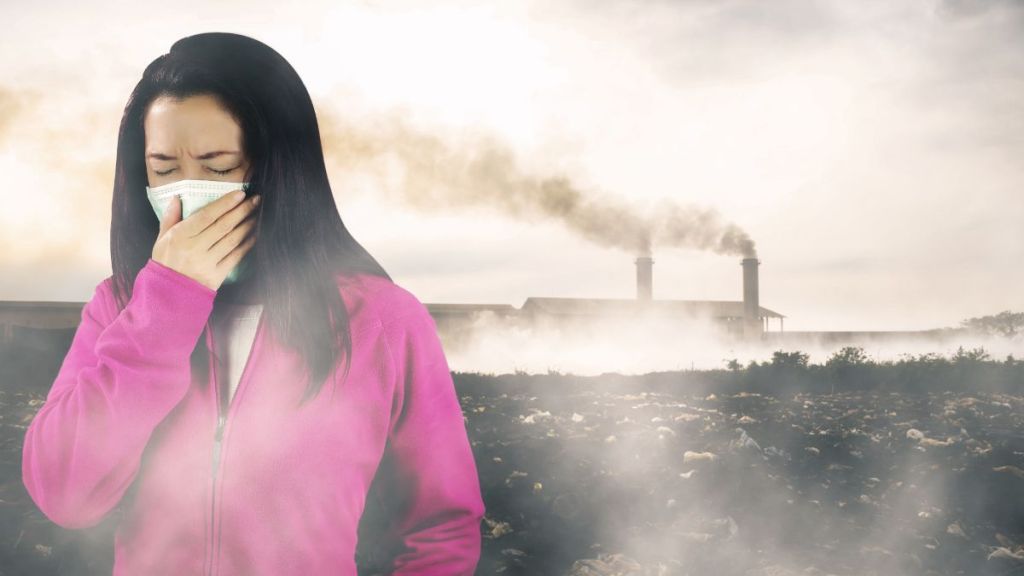Delhi has been waking up to apocalyptic mornings as a thick blanket of smog hangs over the city, instead of the gentle morning breeze. The pollution season in the capital, which kicked off with Diwali, is only getting worse with the rise in stubble burning and the change in weather. AQI in some areas even crossed the 400 mark. As the air quality ranges from poor to severe in most parts of the city, doctors are issuing stark warnings about minimising exposure to pollutants.
Pollution is known to have both short-term and long-term impacts on health. Doctors have noticed the surge in cases of respiratory illnesses like asthma and COPD (Chronic Obstructive Pulmonary Disease), while many people are also reporting relatively milder issues like coughing, sore throat, itchy-red eyes, and dry and flaky skin.
The devastating impact of air pollution
Some of the impact of pollution could also be silent with toxic air affecting lung, heart, and even brain health. In a vulnerable population, this effect could be more severe, and even life-threatening.
According to the National Institutes of Health, prolonged exposure could be behind fatal diseases like cancer and degenerative conditions like Alzheimer’s disease. Air pollution could affect brain, memory, concentration, chances of dementia and in worst cases Alzheimer’s disease.
Beyond lung ailments like acute asthma, acute bronchitis and Chronic Obstructive Pulmonary Disease (COPD), air pollution could also lead to lung cancer, according to Journal of Thoracic Oncology.
Can Delhiites escape the harmful effects of air pollution?
Dr Gopi Chand Khilnani, PSRI Institute of Pulmonary, Critical Care, and Sleep Medicine and former Head of Pulmonary, Critical Care and Sleep Medicine at AIIMS, New Delhi, in an interview with the Indian Express suggests chronic lung disease and chronic heart disease patients to leave the city till the pollution season lasts.
“Everybody cannot afford to leave Delhi, because it is not simple. But those who have chronic lung disease or chronic heart disease, those who are on oxygen, and those who have the opportunity and ability to go abroad or to less polluted places, I very safely advise them to leave Delhi for 6-8 weeks from now, so as to protect themselves from the distress of breathlessness, the requirement of oxygen, and so on and so forth,” he said.
Dr Khilnani told the portal that he stayed in Delhi himself for 40 years due to family responsibilities, but he was aware of the growing threat.
“I have been in Delhi for 40 years myself, I have grown up as a doctor at AIIMS, I was there for 30 years. I had a family to look after, and so I continued. Not that I did not know the danger – the first study we conducted on air pollution was in 1997!” he said.
“But my children and my grandchildren have the choice to relocate, and I have never advised them to come to Delhi-NCR,” he added.
Are you using purifiers the right way
The pulmonologist also shared tips on the right way to use air purifiers.
“Air purifiers have a filter, and good air purifiers have an adsorbent which is expected to adsorb gases [by creating an adsorbate film on the surface that holds back molecules], so that the air that comes out is likely to be clean. An air purifier of good quality and capacity should cover the volume of the room. It should be on all the time. The device should be close to, and should face the person using it, so that the clean air comes directly. Most importantly, the room has to be closed all the time – its effect is nullified if the door is opened multiple times for people to come in and go out,” he told the Indian Express.
(Disclaimer: The article is for informational purpose only. Always seek the advice of your doctor with any questions about a medical condition.)


